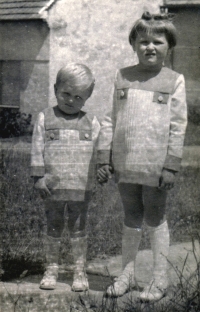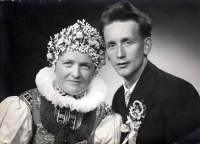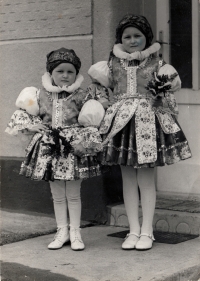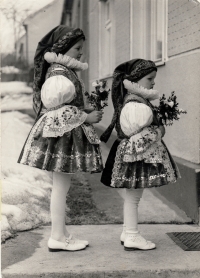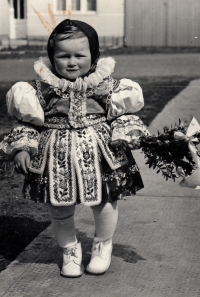We endured it all with the help of God
Download image
Bohumila Suchánková, née Jankůjová, was born on 15 February 1933 in Bánov, a village in south-eastern Moravia in the foothills of the White Carpathians, the second of five children. Her parents came from Bánov, where they farmed 20 ares fields. Her father, Václav Jankůj, also worked as a labourer, ditch digger and earning extra money in the local quarry. Her mother took care of the children and the farm. In the 1950s the family was hit by collectivisation. When her father refused to join the cooperative, he lost his job in the quarry. The mother worked for the United Agricultural Cooperative (JZD) for a token wage. Bohumila, who could not study because of her family situation, joined the arms factory in Uherský Brod in 1948 and for some time supported the whole family. In 1957, their livestock was taken to the JZD. A year later Bohumila married Pavel Suchánek, with whom she raised four children. Before the wedding, her husband had completed the compulsory military service in Jáchymov, where he served on the guard towers of the uranium work camp. Bohumila Suchánková later worked in the JZD as a bull nurse. After serious health problems she retired in 1987. In 2023, at the time of recording, she lived with her family in Vlčnov.
